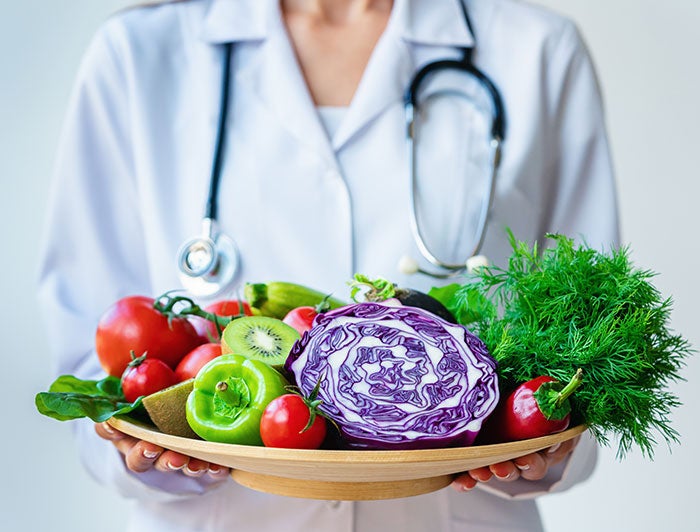Eat a Healthy Diet But Don’t Give Up Chocolate: Oncologists Share Well-being Tips
The University of Vermont Health Network
Burlington, Vt.

The American Cancer Society estimates that a little over 2 million new cancer cases will be diagnosed in the Unites States in 2024, and more than 610,00 Americans will die from cancer the same year. Cancer is the second most common cause of death in the U.S., after heart disease.
Fourteen oncology providers from the University of Vermont Cancer Center and the FitzPatrick Cancer Center at Champlain Valley Physicians Hospital share how they support their own health and well-being, in a recent blog on the UVM Health Network website. These clinicians stress that “a significant percentage of cancers are preventable through lifestyle choices and early detection.”
Staying active and exercising are recommended by all the providers — even “if [you] can spare five to 10 minutes a day,” advises Steve Ades, M.D., medical oncologist at UVM Medical Center. James Gerson, M.D., a UVM Medical Center hematologist and medical oncologist who runs every morning, explains that “exercise has been tied to a lower risk of cancer, but for patients with cancer, to decreased symptoms, improved mood and decreased relapse rates.”
Keeping up to date with “age-appropriate health screenings” is important, observes Patricia Johnson, R.N., oncology care coordinator and lung cancer navigator at Champlain Valley Physicians Hospital. Johnson also mentions prioritizing mental health by spending time “with people who are important to me.”
What not to do? Not smoking or vaping and not spending time in the sun without wearing sunscreen or protective clothing were cited by several providers.
And while Anne Berkowitz, nurse practitioner, hematology and oncology, at UVM Medical Center, recommends making healthy food choices, that doesn’t mean forgoing everything you love. For her part, Berkowitz will “never, ever, ever give up eating chocolate or drinking coffee.”
Teams at UVM Cancer Center lead ongoing laboratory research and population-based research on cancer as well as clinical trials to better understand preventing, diagnosing and treating cancer. One concerning trend: From 1995 to 2020, cancer rates increased in people under age 50. Another UVM Health blog features a Q&A on that topic.

